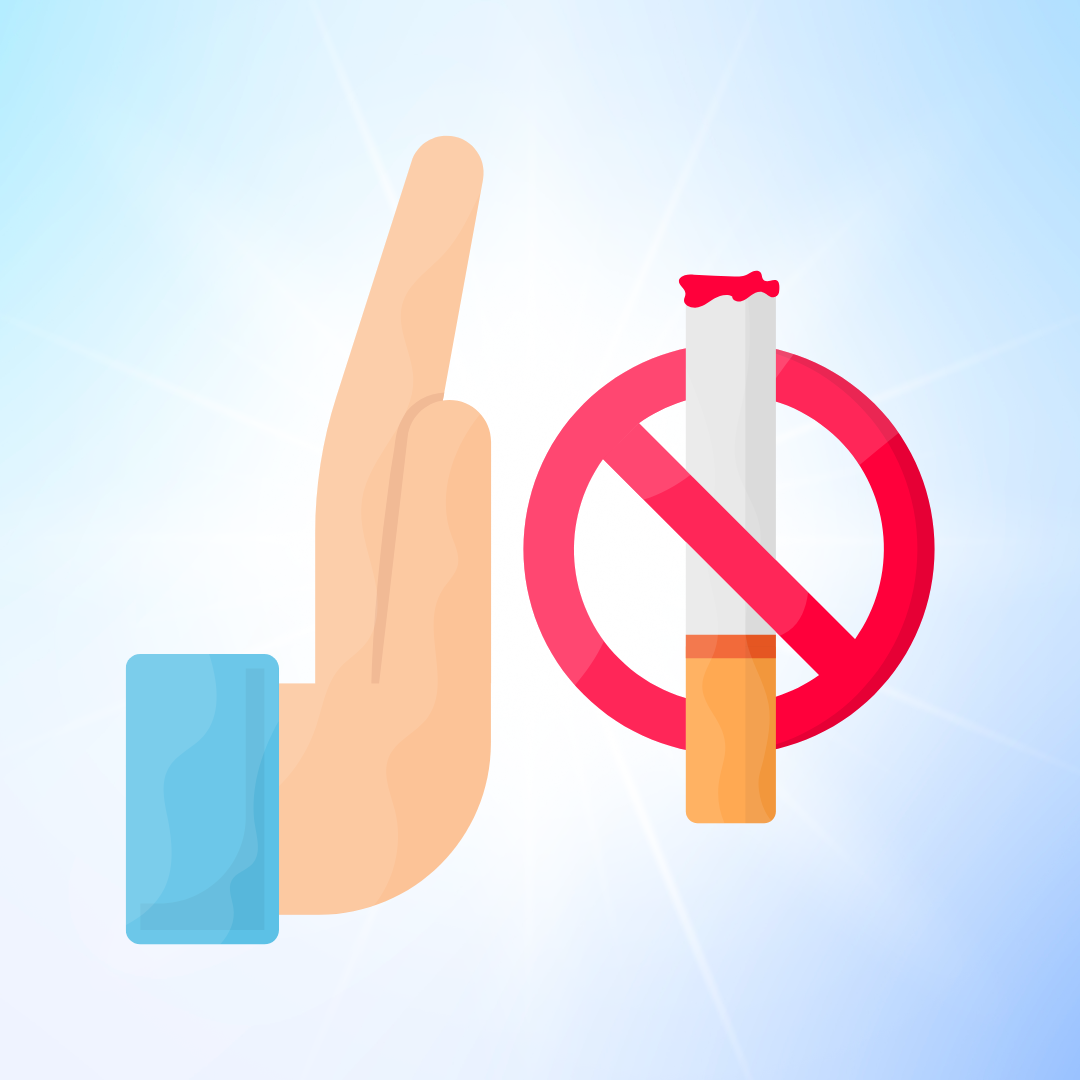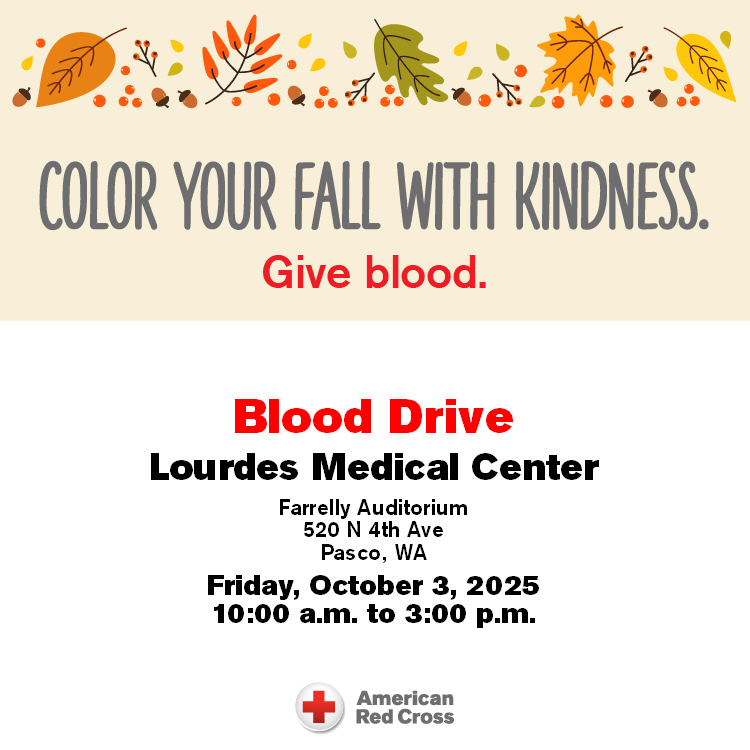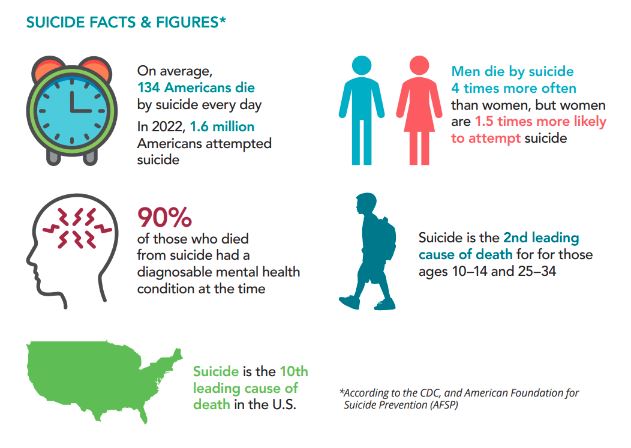Latest News
-

What Your Annual Blood Work Can Reveal About Your Health
December 22, 2025Annual blood work is a cornerstone of preventive healthcare. These routine tests help primary care providers evaluate organ function, detect early disease, and monitor risk factors that may not yet cause noticeable symptoms. At Lourdes Health, providers across Pasco, Washington use annual blood tests to guide personalized care plans and support…
Learn more -
.jpg)
Is It a Cold, the Flu, or Something Else? How to Tell the Difference
November 26, 2025A scratchy throat. A runny nose. Fatigue that won’t quit. As we move into the colder months in Pasco, WA, it’s natural to wonder, “Is it just a cold, or something more serious?” With cold, flu, RSV, and COVID-19 all circulating, knowing what to watch for – and when to get care – can help you…
Learn more -

Smoking Cessation- Your Journey to a Healthier Life
November 14, 2025If you smoke cigarettes, then you’re probably aware of the dangers they pose to your health. Maybe you’ve thought about quitting. According to the Centers for Disease Control (CDC), more than two thirds of smokers express a desire to quit, and more than half have tried to quit within the past year. Unfortunately, when it comes to smoking, quitting is easier said than done. Cigarettes are habit-forming and highly addictive, which is why many smokers fail to quit the first time they try. The good news is that it’s never too late to stop smoking – no matter your age, quitting today can improve your health and wellbeing for the years ahead.
Learn more -

Kena Chase named Market CNO of Lourdes Health & Trios Health
November 03, 2025Lourdes Health and Trios Health announced today, that Kena Chase, MSN, RN, CPPS, has been named Market Chief Nursing Officer (CNO) of Lourdes Health and Trios Health, effective November 3. Kena had been serving as the CNO of Lourdes Health since November 2020. She served as Interim CNO of Trios Health in 2022 and again in July 2025 prior to being named market CNO for Lourdes Health and Trios Health.
Learn more -

National Prescription Drug Take Back Day
October 22, 2025Many of us have taken medicine to help heal from illness or injury at some point in our lives. In fact, according to the Centers for Disease Control (CDC), nearly 50% of American adults used at least one prescription drug within the past 30 days. Although medications can provide many benefits, their misuse can also pose a serious health risk to you and our community. That's why it’s so important to establish and maintain safe medication habits.
Learn more -

What Does Breast Cancer Look Like in Its Early Stages?
October 21, 2025Many people associate breast cancer with finding a lump, but in reality, early breast cancer can show up in many different ways – some of which are easy to overlook. Here are several symptoms that may indicate early breast cancer: A new lump or mass: While not all lumps are cancerous, a painless, hard lump with irregular edges should always be…
Learn more -

Andre Bowers, DNP, Joins Lourdes Behavioral Health
October 07, 2025Lourdes Health is proud to welcome Dr. Andre Bowers, Doctor of Nursing Practice - Psychiatric Mental Health Nurse Practitioner (DNP-PMHNP), as the newest member of our behavioral health care team. Bowers brings a deep commitment to patient-centered mental health care and a wide range of clinical experiences that strengthen our mission to provide compassionate, evidence-based treatment.
Learn more -

Breast Cancer Awareness Month: What to Know About Your Mammogram
October 06, 2025October is Breast Cancer Awareness Month – a time for all of us to acknowledge the impact breast cancer can have on our lives, and to learn about the ways we can keep ourselves healthy. Breast cancer is a health risk for many people, with one in eight women expected to develop the disease during her lifetime. Thankfully, breast cancer is very treatable – if detected early. For women who are at risk, scheduling screening mammograms on a regular basis is an essential part of managing your health.
Learn more -

Why You Shouldn’t Skip Your Annual Physical: Screenings That Save Lives
September 26, 2025Your annual physical is more than a routine doctor’s visit — it’s an important part of long-term health planning. While many people only see a doctor when something feels wrong, preventive care helps identify risks and conditions before symptoms appear. At Lourdes Health, our primary care teams focus on whole-person health. Annual check-ups…
Learn more -
Lourdes Health & Trios Health Encourage Community Members to Get Vaccinated as Flu Season Approaches
September 15, 2025To minimize the spread of influenza this, fall and winter, Lourdes Health and Trios Health are encouraging all employees, medical personnel and community members to get vaccinated as soon as possible. The U.S. Centers for Disease Control and Prevention (CDC) recommends annual flu vaccination for everyone six months and older, with any age-appropriate flu vaccine. If you are considering a nasal spray flu vaccine, it is important to know that this option is approved by the CDC for use in non-pregnant individuals, ages two through 49, and that there is a precaution against this option for those with certain underlying medical conditions.
Learn more -

Lourdes Health Partnering with American Red Cross to Host Blood Drive on October 3
September 15, 2025Lourdes Health is hosting a blood drive with the American Red Cross on Friday, October 3, 2025, from 10 a.m.-3 p.m. at Lourdes Medical Center, in the Farrelly Auditorium on the 4th floor. Community members are invited to join Lourdes employees in rolling up their sleeves and giving this life saving donation.
Learn more -

Suicide Prevention Awareness Month: A Time to Reach Out
September 12, 2025In every community, there are individuals quietly facing overwhelming emotional pain. Suicide Prevention Awareness Month challenges us to step up, speak out, and ensure that help is available for those who need it most.
Learn more -

Commissioning Ceremony for Brian Sims, CEO, Lourdes Health
September 04, 2025On August 27th, 2025, Lourdes Health was pleased to formally commission and bless Brian Sims as its next Chief Executive Officer.
Learn more -

How to Protect Your Child from Fall Viruses like Flu, RSV, and COVID
September 02, 2025As colder temperatures settle in across Pasco, WA, children are spending more time indoors – whether at school, daycare, after-school programs, or even home. These enclosed spaces make it easier for fall viruses like flu, RSV, and COVID-19 to spread. And with colder air drying out nasal passages and weakening immune defenses, kids are more vulnerable than ever…
Learn more -
.jpg)
Why Mosquito-Borne Illnesses Are on the Rise — and How to Protect Yourself
August 01, 2025Warmer weather and standing water are fueling a surge in mosquito-borne diseases. Here’s what you need to know and how to prevent them.
Learn more -

Brian Sims named CEO of Lourdes Health
July 23, 2025Lourdes Health has named Brian Sims as its chief executive officer (CEO), effective August 18. Sims, a veteran health care leader with more than 17 years of executive experience, brings a strong background in rural and community hospital leadership.
Learn more -

Lourdes Health to Host Medical Assistant Open Interviews
July 09, 2025Lourdes Health is pleased to host an open interview day for Medical Assistants (MA’s), on Saturday, August 9 from 9AM – 1PM, at Lourdes West Pasco, located at 7425 Wrigley Drive, Pasco, WA 99301. Individuals who are interested in learning more about full-time opportunities for medical assistants are encouraged to attend.
Learn more -

Lourdes Medical Center earns WSHA's Critical Access Hospital Achievement of Excellence distinction
July 03, 2025On June 25, the Washington State Hospital Association (WSHA) honored 20 rural hospitals for outstanding quality improvement efforts with its 2025 Critical Access Hospital Achievement of Excellence distinction. The distinctions were announced during WSHA’s annual Rural Hospital Leadership Conference at Campbell’s Resort in Chelan, Washington.
Learn more -

Lourdes Health Names 2025 Mercy Award Winner - Sheri Appleby recognized for demonstrating compassion and unwavering commitment to helping others
May 16, 2025Lourdes Health recently announced that Sheri Appleby, RN, has been recognized as the facility’s 2025 Mercy Award winner. The Mercy Award recognizes one employee from each of Lifepoint Health’s facilities who profoundly touches the lives of others and best represents the spirit and values on which the company was founded.
Learn more -

Lourdes Health Names Carol Price as DAISY Award® for Extraordinary Nurses Recipient
May 13, 2025Lourdes Health is pleased to announce that Carol Price, a Registered Nurse at Lourdes Health, has been named as a recent recipient for The DAISY Award® for Extraordinary Nurses at Lourdes Health.
Learn more
